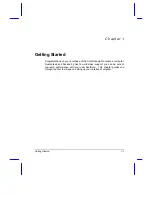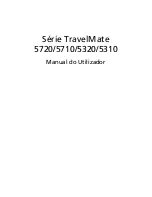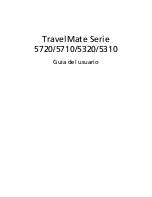
24
5.375 x 8.375 ver 2.3
In some situations or environments, the use of
Bluetooth
wireless technology
may be restricted by the proprietor of the building or responsible representatives
of the organization. These situations may for example include:
❖
Using the equipment with
Bluetooth
wireless technology on board
airplanes, or
❖
In any other environment where the risk of interference to other devices or
services is perceived or identified as harmful.
If you are uncertain of the policy that applies on the use of wireless devices in a
specific organization or environment (e.g. airports), you are encouraged to ask for
authorization to use the device with
Bluetooth
wireless technology prior to
turning on the equipment.
Exposure to Radio Frequency Radiation
The radiated output power of the
Bluetooth
Card from TOSHIBA is far below
the FCC radio frequency exposure limits. Nevertheless, the
Bluetooth
Card
from TOSHIBA shall be used in such a manner that the potential for human
contact during normal operation is minimized.
Regulatory statements
This product complies with any mandatory product specification in any country/
region where the product is sold. In addition, the product complies with the
following:
European Union (EU) and EFTA
This equipment complies with the R&TTE directive 1999/5/EC and has been
provided with the CE mark accordingly.
Canada — Industry Canada (IC)
This device complies with RSS 210 of Industry Canada.
Taiwan
Article 14
Unless approved, for any model accredited low power radio frequency
electric machinery, any company, trader or user shall not change the
frequency, increase the power or change the features and functions of the
original design.
Article 17
Any use of low power radio frequency electric machinery shall not affect
aviation safety and interfere with legal communications. In the event
interference is caused, the use of such electric machinery shall be
immediately discontinued. Operation of such products can be resumed
only when they are modified and can no longer cause interference.
















































